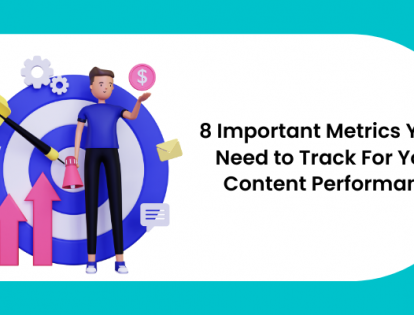Tag: SEO
-

SEO Friendly Dashboard Designs for Inspiration
An effective dashboard design should be close to the top of your website checklist. A good dashboard design is crucial for your business to monitor, analyze, and optimize your performance. Whether you’re a small startup or a large enterprise, an SEO-friendly dashboard is just as important as SEO-friendly content, as it impacts your site’s loading…
-

8 Important Metrics You Need to Track For Your Content Performance
You spend a lot of time and effort writing the most crucial piece of content for your blog. Does your job end when you hit ‘publish’? No. You need content performance metrics. Content performance metrics give you a view into what your customers like and how they engage with the piece. Identifying and measuring the…
-
10 SEO Optimization Tips for Website Copywriting
Search Engine Optimization or SEO is probably the most misunderstood topic with regards to online content. Essentially, it is a process which makes your business’ content rank higher than your competitors’, when users type certain keywords into a search engine. It directly affects the number of views and shares that your website link gets. So…
-

5 Mistakes to Avoid in Keyword Research
Keywords are an important aspect of your SEO campaign. The problem, however, is that you are spoiled for choices. So, it is not inconceivable that you can make mistakes while choosing keywords. What’s worse is that you may not even be aware that you are erring. Below are five common mistakes that should be avoided…
-
What Google Wants You to Know Again: The 100 Links Per Page Guideline is Gone
This week, Matt Cutts talked about the permissible number of links on a webpage. SEO professionals, content marketing professionals and webmasters have been wary of adding too many links on a page for the obvious reason that it will spring search engine spiders into a spam alert. The understanding floating around is that any more…
-
Matt Cutts Rounds Up the Top SEO Mistakes that Most Companies Make
Even with excellent content and attractive websites, most companies fail to attract the expected amount of web traffic because of basic SEO mistakes that they commit. In this video, Matt Cutts – Head of the Google Webspam team lists the top SEO mistakes that he sees frequently. According to him, contrary to popular belief these…
-
How Writing has Evolved Due to the Internet
The English language, like all other languages, is constantly evolving. Whether we like it or not, the digital era has had a huge impact on how people use the English language to communicate. From the overly formal language used by writers fifty years ago, people now use conversational and casual language and tone on the…
-
Matt Cutts Busts the Latest SEO Misconception
To appear on the first page of search results, companies and online marketers will believe and implement any SEO technique or trick they have heard of. Using an SEO technique without any proper analysis have a negative impact on the search rankings of a web page. To maintain current rankings and to prevent being penalized…
-
SEO Updates We Can Expect from Google in The Next Few Months
As Google has released many changes to its search engine algorithms and come down severely on suspicious SEO practices, people are always curious about upcoming changes in terms of SEO. Most people have to settle for speculations as Google is very tight-lipped about future changes it has planned. In this video, Matt Cutts – head…
-
Google’s Penguin 2.0 is Up Next
Last year, Google launched its Penguin update to fight bad linking techniques and to crackdown on spammy content. Matt Cutts – Distinguished Engineer at Google, has just announced that the next major algorithm change will be out in a few days. SEO experts are calling this new set of algorithm changes “Penguin 2.0” and even…